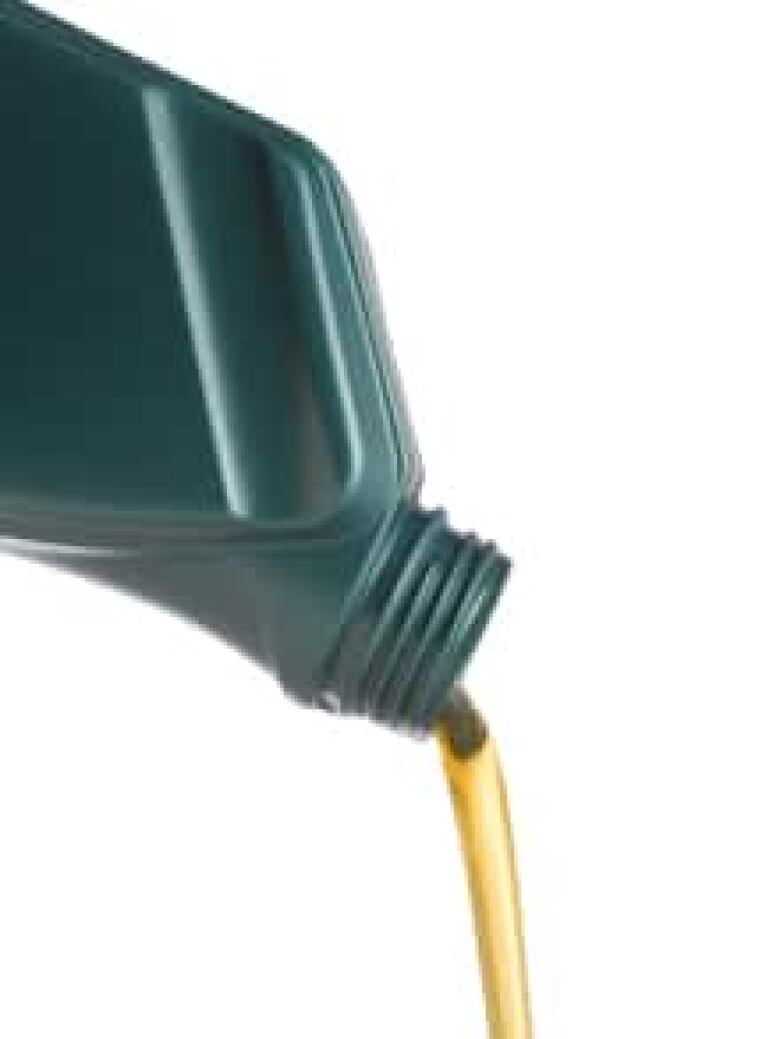Change oil less often, automakers recommend
But service centres ask consumers to change oil more frequently
Newer cars, advanced technology and better engine oils have prompted manufacturers to extend the range between oil changes from 5,000 to 10,000 kilometres.

While it's tempting to save a few dollars by extending the time between oil changes, it's not a particularly good idea, according to Kent Asselstine, owner of Edmonton's Legend Automotive.
"Oil changes are the cheapest insurance we have. We're getting recommendations on changing oil from the manufacturer, whose interest is what — selling vehicles," he told CBC News.
Even the manufacturers who recommend going the longer distance say the 10,000-kilometre interval is not carved in stone.
A spokesman with Ford told CBC News that the time between oil changes depends largely on the conditions under which a vehicle is driven.
There are normal driving conditions, which are defined as trips over 10 kilometres on the highway at moderate temperatures, where a longer duration is acceptable.
But driving with a heavy load, in stop-and-start downtown traffic, or in extreme outdoor temperatures requires more frequent oil changes.

"The aluminum and the components being used in engines today, the tolerances are extremely fine and they will not sustain a missed oil change interval."
Asselstine says synthetic oils do extend oil change intervals to 10,000 kilometres, but usually doubles the cost of a $50 to $70 oil change.
"We stick to the 5,000-kilometre oil change intervals for those folks who would like to use a mineral oil, or a regular 5-30 or 5-20 oil."
For an average driver who logs about 18,000 kilometres a year Asselstine recommends sticking with the 5,000-kilometre or four-month interval between changes.
"The vehicles are actually better now and they're lasting 200,000 to 300,000 kilometres, but they don't get that far unless we maintain them a certain amount."
Environmental concerns
About 65 per cent of the oil that's put into vehicles comes out with every change, so shorter durations between changes does add more used oil to the environment.
However, nearly all of it is recycled, according to Roger Jackson, executive director of the Alberta Used Oil Recycling Program.
He told CBC News that every province now has a system of collecting and reusing the oil that comes out of cars.
"It's burned as a fuel in Alberta environment approved burners, most of which are asphalt burners," he said of his own provincial program.
Some of it is also re-refined at one of two Canadian processors, one in Ontario, the other in B.C.
Oil that can't be immediately burned or re-refined is stored.
"A lot of it becomes inventoried feed stock for future use, which we don't really like to support, but as long as its not heading to landfills and it's going to be used eventually we don't mind that."
He said oil producers pay for the recycling programs.